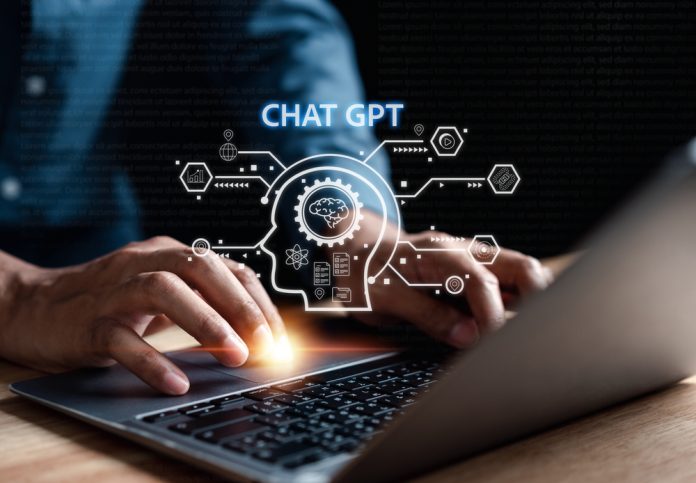
Artificial Intelligence (AI) is at the forefront of tech trends, capturing widespread interest and attention. Generative AI solutions like ChatGPT are getting the lion’s share of the buzz. But when it comes to the future of corporate learning, the influence of AI extends way beyond the content creation processes. Nonetheless, that’s where we’ll begin.
ChatGPT
ChatGPT can generate content, which means it can also generate learning content, and it seems to do most of the heavy lifting when creating a course. But users should be wary because ChatGPT-generated content has two major flaws: it’s generic and poor quality.
Let’s start with the generic nature of the content. ChatGPT draws information from the internet; of that data, it believes the most shared content is accurate, so it will only provide the most commonly available data on a subject. In corporate learning, the value of this generic output is worth little. The essence of effective corporate training is its relevance to the company context and whether it addresses the organization’s unique knowledge and performance needs. AI-generated content lacks this company-specific angle.
The second issue with ChatGPT outcomes is their lack of quality. And we’re not even talking about AI hallucinations that result in nonsense results. AI-generated content is wordy, knowledge-heavy, and lacking in the application of didactic or instructional design principles. It does not qualify as learning material. Instead, it’s an overview of readily available generic information on your topic.
You communicate your requirements to AI tools such as ChatGPT by providing prompts. The AI engine creates the learning material accordingly. This outcome is shaped by the quality and specificity of your prompt and the AI tool’s knowledge. Crafting an effective prompt is an essential skill known as prompt engineering. Given AI tools’ lack of didactic understanding, you should also include didactic and design instructions in your prompt. But even then, it will still be a generic course with poor didactical quality.
The evolution of AI tools
Yet AI tools are developing staggeringly fast. In late 2023, ChatGPT added a new functionality where ChatGPT Plus subscribers can upload documents in PDF, Word, or PowerPoint formats. By uploading your own information into the tool and using that information in your prompt, you can generate more specific learning content. However, the generated learning content will still need to be of higher quality before it can serve as learning material. Authors should only use this content as a starting point.
Now, ChatGPT has further evolved its upload functionality, allowing users to create their own custom versions of the tool. You can now create your “custom GPT” that refers to the curated documents you uploaded to formulate a reply. So, this “custom GPT” becomes a permanent database you can build over time instead of uploading relevant documents during each session.
But what if you could all your company knowledge and insights into the “custom GPT” instead of just a few documents? AI tools can do that—at least the beginning stages of this feature are here. AI tools can mine or scrape corporate data and information from your intranet, email applications, and messaging applications like Teams or Slack. Employees can directly ask questions via an AI-powered interface and receive immediate, company-specific responses extracted from that AI database. For example, tools like Microsoft Copilot can already gather information from the applications above and store it in an AI database. It’s not perfect yet, but it’s out there.
The ‘corporate brain’
Our book Employee-Generated Learning explores this concept, AI’s implications, and use cases for leveraging these facilities in depth. We call this collection of knowledge, experiences, and insights a ‘corporate brain.’ The most profound impact of a corporate brain goes beyond generating specific learning content (though that is a significant use case). The greatest power is having a performance support tool that can instantly and accurately answer your workers’ specific work-related questions while working through a natural language prompt interface.
Former HP CEO Lewis Platt said, “If HP knew what HP knows, we’d be three times more productive.” Indeed, in any organization where someone faces a question or problem, another employee likely knows the answer or solution. The challenge was always that this wealth of information only existed within employees’ minds and was not accessible. But now, with the corporate brain, this vision is becoming a reality.
Your company will have a corporate brain. It is not an issue of “if” but “when.” Consider the profound implications this will have on your corporate learning and training. Currently, most of the corporate training is knowledge-centric. However, if all this knowledge becomes readily accessible at the touch of a prompt, the traditional value of knowledge-based training will diminish or at least significantly change. The focus will shift from learning facts to learning to apply this information in your everyday work. Corporate learning is not about acquiring knowledge; the value is only created when the information is used and applied. It’s all about skills.
There was already a trend in corporate learning to move from knowledge acquisition to skills development. The arrival of a corporate brain will accelerate this shift. As a result, we need to reevaluate what we teach in corporate settings and how we teach it. The greatest challenge is transforming our learning content and processes from knowledge-driven to skill-oriented. And this is not a small thing; skills training is very different from knowledge acquisition. It requires a different mindset, different or adjusted tooling, and different learning content and flows. This shift to skills-based learning is AI’s most significant and impending impact on corporate learning, and we believe this will be a game-changer.




